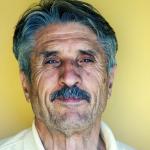
I first published this story a little over two years ago—but it has stayed with me and I am again contemplating this unique approach to life. It’s based on a simple premise: “What if you trusted the flow of life enough that you said ‘yes’ to everything that life brings you.”
What would happen if you totally and completely let go? What if you stopped making decisions and began saying yes to whatever came your way? Would life unfold the way it was supposed to instead of the way you forced it to happen?
These are the type of questions that led Michael A. Singer to try something he called The Surrender Experiment. It’s the title of a book that details the amazing twists and turns that Singer’s life took when he stopped thinking and analyzing every decision he made, and began saying yes to everything that life brought his way.
First some background on Singer. He is probably best known for his 2007 book The Untethered Soul, which landed him a guest spot on the Oprah Winfrey show and became a #1 New York Times bestseller. But his most recent book reveals something even more interesting, the story behind the story.
Singer was a self-described “hippie” living near Gainesville, Florida, when he went on a quest to quiet the chattering voice inside his head, the one that analyzed and often criticized his every move. He began a process where, through long meditation sessions, he learned how to quiet this part of his brain, never judging, just going with the flow of life. And life takes him on a wild ride.
While in a Radio Shack one day in the late-1970s, he takes an interest in one of the very first personal computers. After making a few trips to the store to “play” with the display model, he buys one and teaches himself how to write computer code. He eventually ends up writing a billing program for a doctor’s office, and through a series of synchronistic events, winds-up creating the country’s largest medical software firm.
There’s much more to the story, but let’s first look at Singer’s way of thinking that got him to a place where he enjoyed such success. In this passage, he sums up the daily conundrum most of us face:
The battle between individual will and the reality of life unfolding around us ends up consuming our lives. When we win the battle, we are happy and relaxed; when we don’t, we are disturbed and stressed.
Singer wonders if it has to be this way. He speculates that “if the natural unfolding of the process of life can create and take care of the entire universe, is it really reasonable for us to assume that nothing good will happen unless we force it to?” To combat the negative effects of constantly doing battle with life, Singer charts another course:
I decided to just stop listening to all the chatter about my personal preferences, and instead, start the willful practice of accepting what the flow of life was presenting me.
He quite literally puts life in charge, realizing that “life was asking me to get out of the way and let her do her thing.” This is easier said than done because it often means saying yes when the judgmental part of him wants to say no, but Singer had spent years readying himself for this task. He meditated for hours each day and built a “temple” on his land in Florida where like-minded visitors came for yoga and spiritual discussions.
One important point I should mention here is that we should not confuse “surrender” with passivity or weakness. In Singer’s world, “it required all the strength I had to be brave enough to follow the invisible into the unknown.” He goes on to say that “I let go of myself and allowed what was meant to be—to be.”
By accepting the “challenge of serving the energy that came my way,” Singer is able to build a massive national company—that at the peak of its success is brought down by an unscrupulous former-employee. One of his top salesmen is arrested by the government for taking kickbacks and to save his neck implicates Singer in the scheme. An overreaching federal prosecutor goes after Singer in a case that gets tied up in the courts for years.
The charges were eventually dropped and he went back to his temple where he had started his meditation sessions 40 years earlier. Over the years, thanks to his business success, his property had grown to over 100 acres and several structures, and hosted both morning and evening services. In his words, “because I had surrendered each step of the way, no scars were left on my psyche.” He goes back home in peace.
He had learned what were for him were the most vital lessons of life—that by putting life in charge, everything would work out just the way it was supposed to. Below are Singer’s parting words, lightly edited, summarizing his experience:
All I did was my very best to serve what was put in front of me and let go of what stirred up within me. Joy and pain, success and failure, praise and blame—they all had pulled at what was so deeply rooted within me. The more I let go, the freer I became. I realized to the depth of my being that life knew what it was doing. Once you are ready to let go of yourself, life becomes your friend, your teacher, your secret lover. When life’s way becomes your way, all the noise stops, and there is great peace.
Postscript: After first publishing this story I reached out to Michael Singer with a question about whether this approach works for people from all walks of life. You can see his response in the story here.













